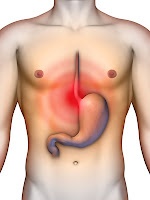This article is kindly provided by LUKA MARJANOVIC
Researching the Undiscovered Properties of Cannabinoids for the Treatment of Respiratory Infectious Diseases
“We know that the epidemiology of COVID-19 is similar to the influenza virus and has a similar disease presentation. And we know that in studies where THC was administered to mice with influenza, we saw an increase in viral loads and a decrease in the immune system to fight off the virus. It stands to reason that the same would hold true for Coronavirus and THC consumption could diminish the immune system of someone infected with the virus,” said Aurelius Data CEO Julie Armstrong in a press release.
More research is required to precisely outline the relationship between the immune and endocannabinoid systems.
That seems to be the consensus among experts in the industry. There is mounting evidence that CBD shows remarkable autoimmune and inflammatory response.
A company in the field of cannabis and psychedelic research, Wuhan General Group, intends to examine this further – and research the undiscovered properties of cannabinoids for the treatment of respiratory infectious diseases.
Wuhan Chief Medical Officer writes in their latest newsletter.
Read the full newsletter below:
Researching the Undiscovered Properties of Cannabinoids for the Treatment of Respiratory Infectious Diseases
Intro
You’re probably in quarantine as most of us are. Good news, we are still working very hard for our shareholders. Our newsletter will keep you informed about our progress while you’re safe at home.
What’s happening
Just how will the coronavirus epidemic end? It’s a question you’ve probably wondered about multiple times during this period of quarantine and social distancing. If not, you likely wish things would just go back to normal.
The present outbreak of a coronavirus-associated acute respiratory disease called coronavirus disease 19 (COVID-19) is the third documented spillover of an animal coronavirus to humans in only two decades that has resulted in a major epidemic. We believe it will not be the last.
The population is now well aware: having breathing difficulties is one of the first symptoms to watch out for related to the coronavirus. The immune response to the virus triggers an inflammatory reaction in the lungs of infected people. When this inflammation becomes too intense, it causes serious breathing problems. And these are the complications that can lead to death. Hence the importance of better understanding this inflammatory reaction so we can find a treatment.
This is what we are working on!
At Wuhan General Group, our research science team believes that the naturally occurring anti-inflammatory and immunomodulatory properties of plant-based cannabinoids require further examination. You might ask why? What does CBD have to do with COVID-19 or any other actuate respiratory infectious diseases?
Ask yourself, how does the virus affect you? Yes, the symptoms. What symptoms do all acute respiratory diseases have in common in severe cases that can result in death? Pneumonia.
The inflammatory responses of respiratory viruses associated with Severe Acute Respiratory Symptom (SARS) and Middle East Respiratory Syndrome (MERS) and now COVID-19, in severe most cases is pneumonia which results from the infection that inflames the air sacs (alveoli) in one or both lungs. The air sacs may fill with fluid or pus (purulent material), causing a cough with phlegm or pus, fever, chills, and difficulty in breathing.
Pneumonia
Pneumonia is an infection that causes inflammation in your lungs. The main causes of pneumonia are bacteria, fungi, parasites, or viruses. If the pneumonia is severe, the affected person is generally hospitalized. Oxygen therapy may be used if oxygen levels are low. In developing countries, and also among the very old, the very young and the chronically ill, pneumonia remains a leading cause of death.
In adults, viruses account for approximately a third and in children for about 15% of pneumonia cases. Commonly-implicated agents include rhinoviruses, coronaviruses, influenza virus, respiratory syncytial virus (RSV), adenovirus, and parainfluenza. Those with viral infections may be secondarily infected with the bacteria Streptococcus pneumoniae, Staphylococcus aureus, or Haemophilus influenzae, particularly when other health problems are present. Different viruses predominate at different periods of the year; during flu season, for example, influenza may account for over half of all viral cases. Outbreaks of other viruses also occasionally occur, including hantaviruses and coronavirus. Severe acute respiratory syndrome coronavirus 2 (SARS-CoV-2) can also result in pneumonia. The severity of the condition is variable.
We are investigating how cannabinoids can reduce inflammation, therefore, reduce the time and treat the rigorous symptoms of pneumonia faster.
Understanding exactly how the virus works on the lungs and the immune system will help develop the best treatments to help patients.
Cannabinoids: undiscovered anti-inflammatory and immunity booster
Medical cannabis throughout the literature and the medical community is known to possess anti-inflammatory and immunomodulatory properties – cannabinoids being the active ingredients that come from the cannabis plant.
Previous studies have shown that the plant cannabinoids like CBD, or CBG work in unison, instead of isolated doses like you find in CBD oil — demonstrate particular effectiveness in reducing inflammation. Other research has shown flavonoids in cannabis — the phytonutrients responsible for a plant’s colour and pigmentation — contain anti-inflammatory effects 30 times more powerful than aspirin.
On top of that, we know from a medical standpoint that these active ingredients have immunomodulatory properties, meaning that they augment and boost the immune system. We’ve seen this in diseases such as Crohn’s disease, rheumatoid arthritis and multiple sclerosis where medical cannabis functions as a naturally occurring immunomodulator.
For example, focusing on how cannabinoids affect HIV/AIDS patients, researchers found that those who were medicinal cannabis users developed stronger immune systems and generated more T cells that kill HIV. However, the study’s authors wrote, “the mechanisms by which marijuana acts upon immune and neurocognitive functioning cannot be determined from the current study.”
Cannabinoids: Targeting Respiratory Infectious Diseases Symptoms
Wuhan is deeply committed. The need is too great and we have to act now and conduct the science for present and future virus pandemics. We are not suggesting with the current available knowledge of medical cannabis that it is a possible prevention, treatment or cure for the coronavirus. However, plant cannabinoids have naturally occurring immunomodulatory and anti-inflammatory properties that could change the course of treating respiratory infectious diseases symptoms.
First responders, doctors, nurses and so many more are working countless hours to help us all . They don’t do it for glory, but because they feel they have a mission. Like everyone on the front line in the fight against COVID-19, our team feels it can make a difference. We all can do our part. Back to the ER for me. Stay calm, we will get through this.
Sincerely,
Dr. Anna
Chief Medical Officer
Wuhan General Group



